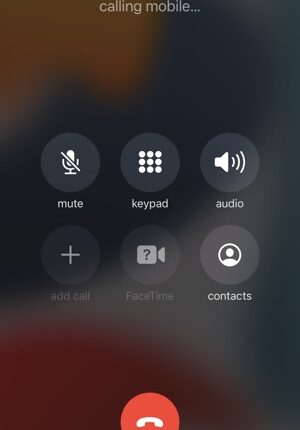ALL iPhone owners should heed Apple’s advice – or risk losing serious cash.
The tech giant has warned users not to be fooled by scam phone calls.
Scam phone calls aren’t new, but they’re increasingly devious.
An Apple support page warns iPhone owners to be cautious when receiving unsolicited phone calls.
They can seem very convincing, but could be a ploy to steal your personal info – or even your cash.
“Scammers use fake Caller ID info to spoof phone numbers of companies like Apple,” Apple explained.


“And often claim that there’s suspicious activity on your account or device to get your attention.
“Or they may use flattery or threats to pressure you into giving them information, money, and even Apple gift cards.
“If you get an unsolicited or suspicious phone call from someone claiming to be from Apple or Apple Support, just hang up.”
Apple urges iPhone owners to report scam calls to the police.
Most read in Tech
Phishy!
Scam calls aren’t the only thing you need to worry about.
Apple also warns that unsolicited emails and texts can be a real danger to iPhone owners.
“If you’re suspicious about an unexpected message, call or request for personal information or money, it’s safer to presume that it’s a scam and contact that company directly if you need to,” Apple explains.
Apple lists the following tips:
- Never sharing personal info unless you can verify the recipient
- Using two-factor authentication
- Avoid using Apple Gift Cards to make payments
- Find out how to identify legitimate company emails
- Only download apps from trustworthy sources
- Don’t follow links or open attachments in suspicious or unsolicited emails or texts
It’s often extremely difficult to identify when a text message or email is fraudulent.
But there are some clues that you can look out for.
For instance, check to see if the sender’s email address or phone number matches the company they claim to be from.
See if they’re contacting you on a different email or phone number from the one you supplied.
Take a look at links in messages (without clicking them) to see if the URL matches the company’s website. You can usually do this by hovering over a link.
Examine the message to see if it looks significantly different from other missives you’ve received from the company.


If the message asks for personal info like a credit card number or account password, treat it with extreme caution.
Best Phone and Gadget tips and hacks

Looking for tips and hacks for your phone? Want to find those secret features within social media apps? We have you covered…
We pay for your stories! Do you have a story for The Sun Online Tech & Science team? Email us at [email protected]
This post first appeared on Thesun.co.uk









